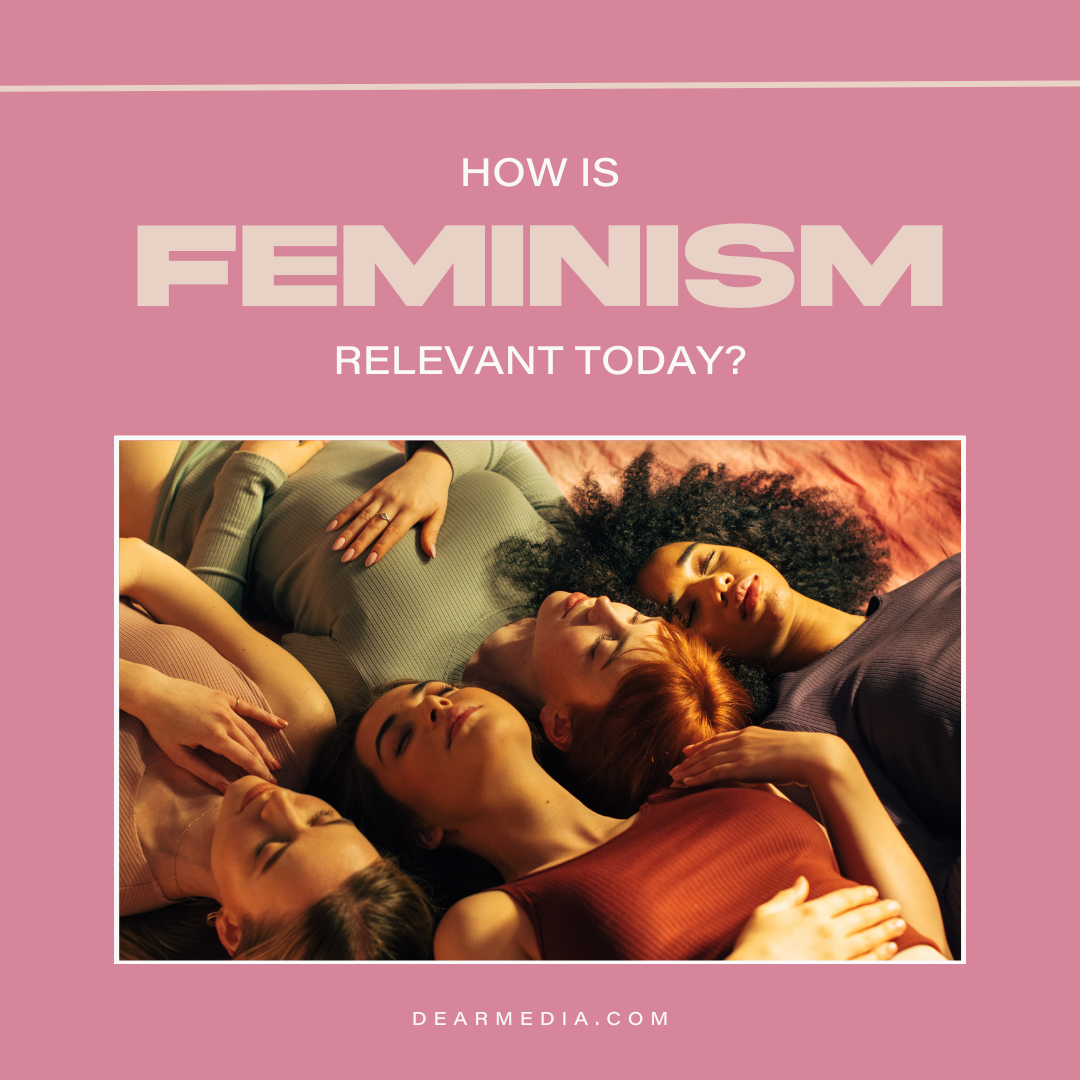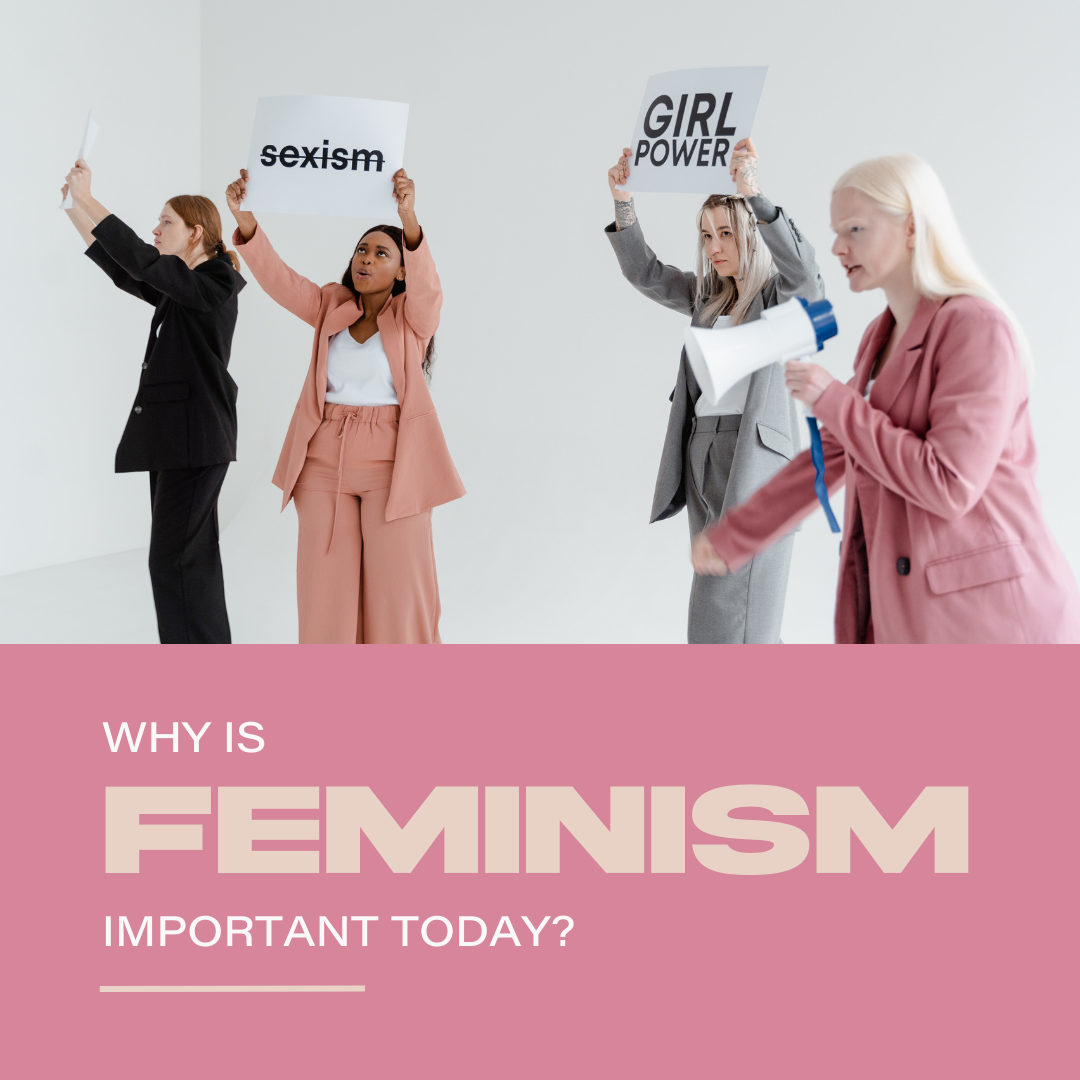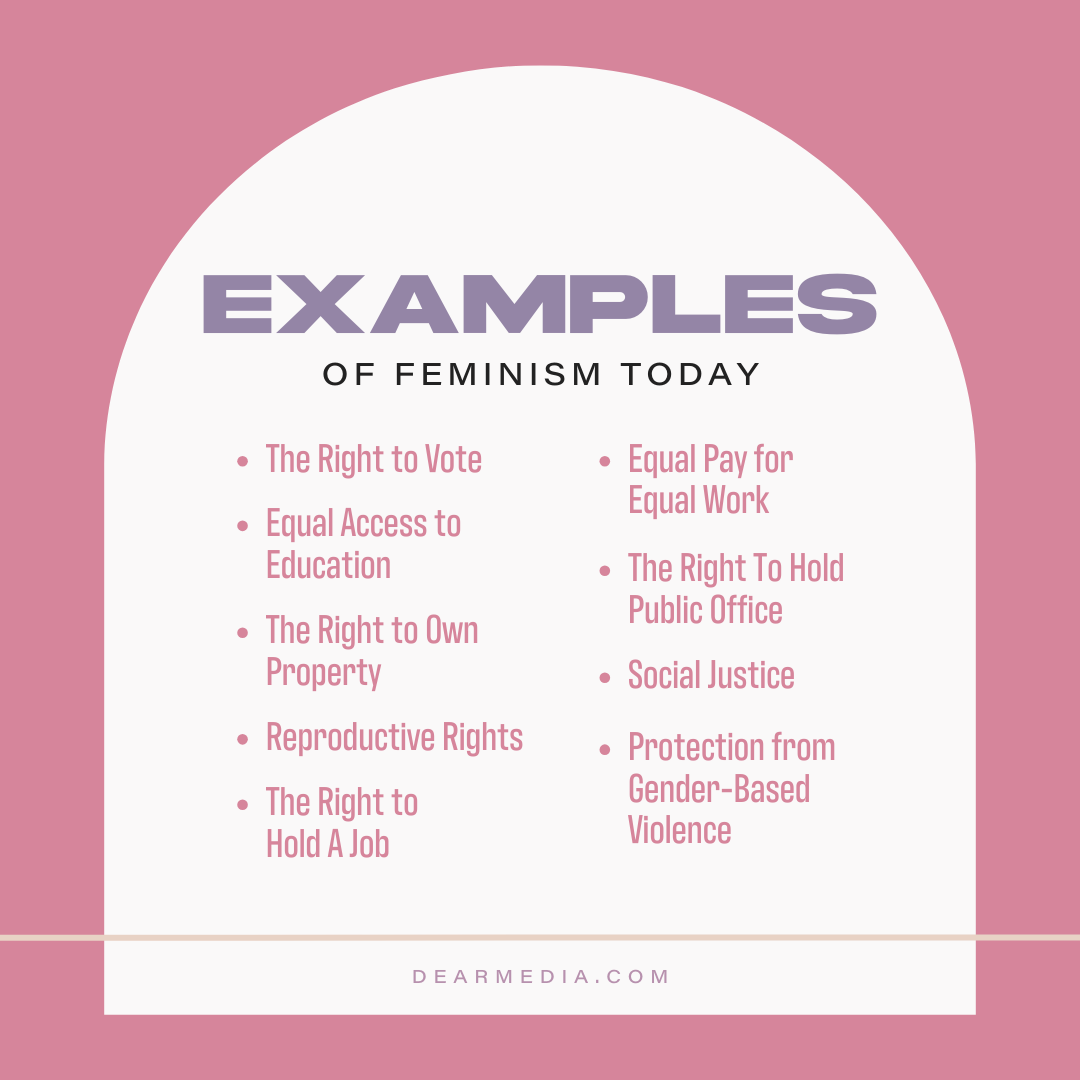How Is Feminism Relevant Today?
Ask someone at random whether they think gender issues are still relevant today and you’re bound to get a wide range of answers. But, the MINUTE you mention feminism, people (men especially) get super touchy. That, in itself, is proof that although feminism has been around for many years, it’s definitely still relevant today.
Although we’ve made giant leaps toward gender equality in the last few decades, we still have a looong way to go. Sure, women can vote, and hold leadership positions, and have a higher IQ than men without getting accused of witchcraft—but as women, we’re selling ourselves short if we pretend to be satisfied with the current state of things.
(Want to challenge the status quo and make it clear where you stand on women’s rights? Sip coffee from this sassy mug while surrounded by your male coworkers!!)
Women have been struggling for equality and against oppression for centuries! Not to be a total bummer, but the struggle is far from over. Feminism is still relevant, even in today’s modern society. How so? Let’s get into it!

How Is Feminism Relevant Today?
Feminism, in its various forms, has impacted society in more ways than most people realize. It started with women fighting for what we now see as basic human rights and transformed into the movement we see today.
You’ve probably heard men and women mention gender equality while discussing the gender pay gap or the MeToo Movement. These issues are the driving force behind modern feminism.
But feminism, as a whole, is so much more than what we see on TV, the internet, and social media.
What Is Feminism?
To put it simply, feminism is about equal opportunities and rights for all genders. Feminism is about advocating for the rights of women, with equality as the ultimate goal. And while the issues we mentioned above certainly helped to put feminism on the map, the movement is about so much more. Before we get into that, let’s get technical.
There are four waves of feminism:
- + First Wave: Late 19th Century
- + Second Wave: 1960s to 1990s
- + Third Wave: Mid-90s to Early 2000s
- + Fourth Wave: 2010s to Now
During the first wave, feminists mainly focused on women’s right to vote among middle- and upper-class white women in Western countries. The second wave focused on reproductive rights and sexuality while fine-tuning the feminist theory. This wave reached beyond the United States and included international support.
Third-wave feminist movements were strongly influenced by the arrival of the internet. During this time, feminists embraced feminine sex symbols, rather than viewing them as oppressive like feminists before them. Basically, this is where sex positivity and true female individualism started! (Before this, our girl Carter Cruise could have never made her Ex Virgin podcast all about femininity and sex!!!)
Fourth-wave feminists, or feminists today, are motivated by intersectionality. Intersectional feminism focuses on the intersections of sexual orientation, gender, race, class, and other identities related to gender while challenging transphobia and homophobia. Fourth-wave feminists use social media to combat issues like sexual harassment and assaults through the #MeToo movement.
(To better understand the emotions that drive modern feminists, check out the episode of The Bad Broadcast called FEMININE RAGE this episode of The Bad Broadcast: FEMININE RAGE while you drink your coffee or tea from host Madi Murphey’s ironic “Smart For A Girl” mug!)
OK, history lesson aside, let’s talk about what feminism has done for our society. After all, a movement is defined by its progress!
We can thank feminism for:
- + Title IX: The federal civil rights law that bans sex discrimination in schools.
- + The Violence Against Women Act: The law that recognizes domestic violence as a public issue and creates appropriate responses to DV, sexual assault, stalking, and dating violence.
- + The Family and Medical Leave Act: A law that requires employers to provide their employees with job-protected, unpaid leave for specific medical and family reasons.
Is Feminism Relevant Today?
YES!!! Feminism is an integral part of modern society. It has changed drastically over the years, but it still continues to impact our lives today.
We continue to face issues of equality in nearly every aspect of our lives… Uhh, the pink tax, anyone!?
Unfortunately, no matter how much acne cream we pour onto it, gender inequality isn’t going to just disappear overnight.

Why Is Feminism Important Today?
Inequality & and male supremacy continues.
As we mentioned earlier, feminism is important today because women and girls still face inequality, discrimination, wage gaps, and daily violence.
Need a couple of examples? Men still predominantly rule the business world: Women CEOs run just 10.4% of Fortune 500 companies. Despite winning 23 Grand Slam titles in her career, Serena Williams is rarely mentioned among the greatest athletes of all time.
Serena Williams isn’t the only athlete that deserves more recognition. At Dear Media, we produced a whole podcast with TOGETHXR on the criminally undertold story of the 1996 Summer Olympics where American female Olympians absolutely DOMINATED! It’s a must-list for any feminist. Check out Summer of Gold.
Women deserve better!!!
Feminism empowers young people.
Young people are our future leaders. If we can empower them through feminism, we can increase our chances of living in a world where women are treated as equals. Isn’t that the kind of world we all want to live in?
If you’re as excited about empowering young people as we are, check out the episode of Being Bumo called Inspiring & Instilling Confidence in Girls w/ Jes Wolfe of Rebel Girls.
Feminism benefits everyone, not just women.
At its core, feminism is about equality, not superiority. The feminist movement strives to reassemble gender roles and create opportunities for people to live their lives free from “traditional” positions and restrictions.
Think of it this way: the feminist movement strives to ensure that the right person gets what they deserve, whether it be a salary, a leadership position, or “basic” human rights, regardless of their gender.
If you want more on the beauties of feminism, listen to The One Where Strength is Feminine from The Papaya Podcast.

Examples Of Feminism Today
- + The Right to Vote
- + Equal Access to Education
- + The Right to Own Property
- + Reproductive Rights
- + The Right to Hold A Job
- + Equal Pay for Equal Work
- + The Right To Hold Public Office
- + Social Justice
- + Protection from Gender-Based Violence
Feminism is just as relevant today as it was centuries ago, and the feminist movement is one that anyone can (and should) join!
Feminism is often misconstrued to mean that women deserve more power and recognition than men, but it’s all about equality. When you get down to the nitty-gritty of the feminist movement and everything that it strives for, it’s easy to see that men and women should hop on board and show their support.
For an easy way to remember your worth and show support for women everywhere, rock this fab t-shirt: The Baddest Broad in the West T-Shirt. It’s the perfect way to radiate disruptive feminine energy! Until then, learn more about societal issues, pop culture, relationships, and more on the Dear Media blog!



















